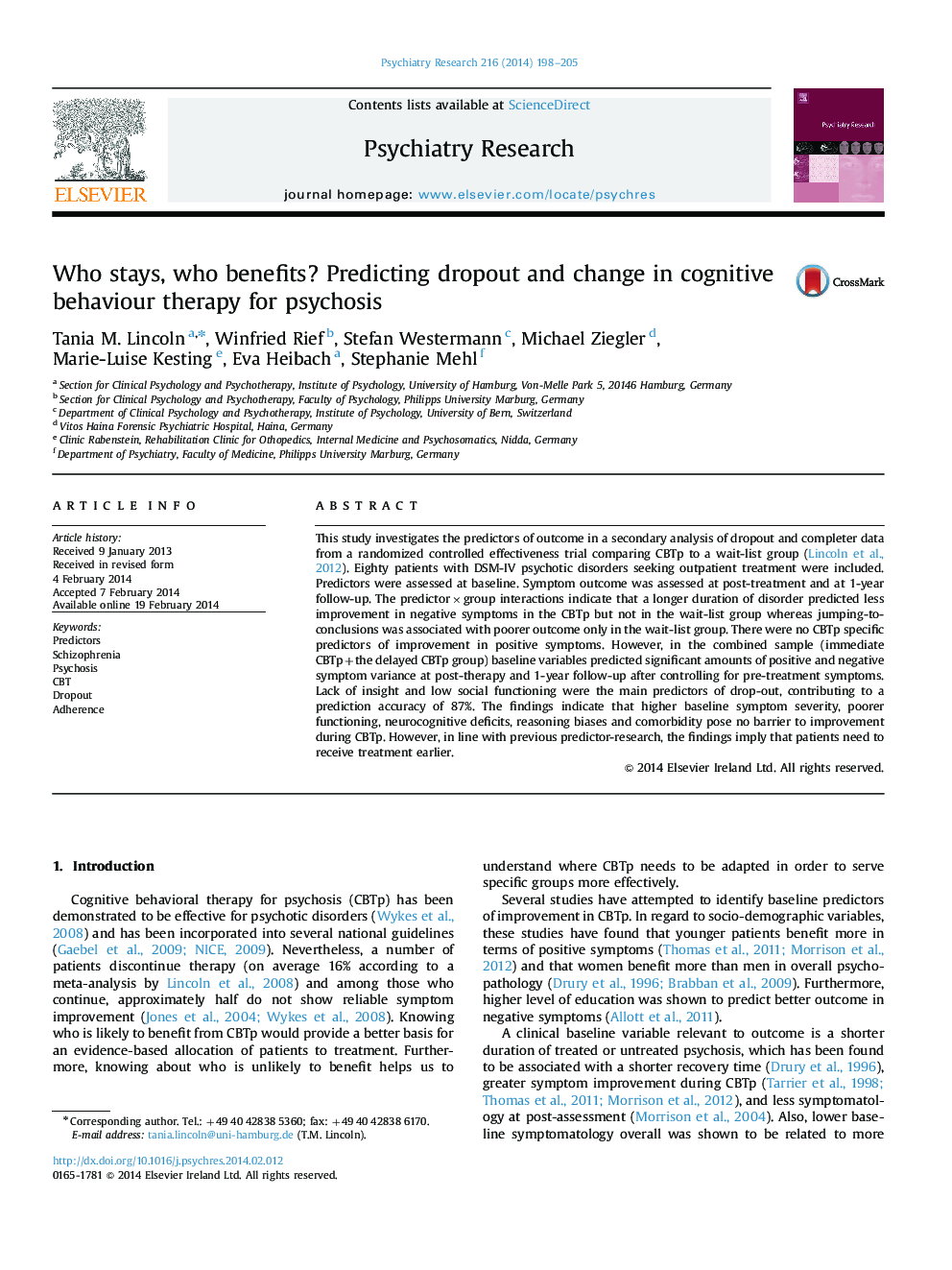| کد مقاله | کد نشریه | سال انتشار | مقاله انگلیسی | نسخه تمام متن |
|---|---|---|---|---|
| 333027 | 545896 | 2014 | 8 صفحه PDF | دانلود رایگان |
This study investigates the predictors of outcome in a secondary analysis of dropout and completer data from a randomized controlled effectiveness trial comparing CBTp to a wait-list group (Lincoln et al., 2012). Eighty patients with DSM-IV psychotic disorders seeking outpatient treatment were included. Predictors were assessed at baseline. Symptom outcome was assessed at post-treatment and at 1-year follow-up. The predictor×group interactions indicate that a longer duration of disorder predicted less improvement in negative symptoms in the CBTp but not in the wait-list group whereas jumping-to-conclusions was associated with poorer outcome only in the wait-list group. There were no CBTp specific predictors of improvement in positive symptoms. However, in the combined sample (immediate CBTp+the delayed CBTp group) baseline variables predicted significant amounts of positive and negative symptom variance at post-therapy and 1-year follow-up after controlling for pre-treatment symptoms. Lack of insight and low social functioning were the main predictors of drop-out, contributing to a prediction accuracy of 87%. The findings indicate that higher baseline symptom severity, poorer functioning, neurocognitive deficits, reasoning biases and comorbidity pose no barrier to improvement during CBTp. However, in line with previous predictor-research, the findings imply that patients need to receive treatment earlier.
Journal: Psychiatry Research - Volume 216, Issue 2, 15 May 2014, Pages 198–205
